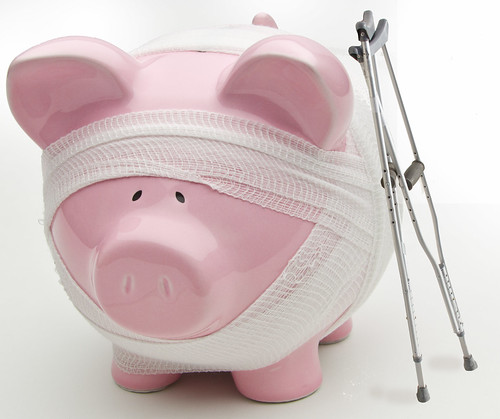
Many consumers are being caught out because of the difference in paying for goods by Direct Debit and setting up a regular payment from a credit or debit card (known as a Continuous Payment Agreement, CPA).
What is the difference between a Direct Debit and a Continuous Payment Agreement?
A Direct Debit is an agreement between the customer and the bank to pay the agreed sum which is requested by the company as and when due. It is covered by the Direct Debit guarantee, which means the account holder is able to cancel the payments by speaking to the bank at any time. Of course, depending on what the payment is for, you may still end up owing the company money but they will not be able to simply debit your bank account for the funds.
And if the bank mistakenly pays out the monies after you have cancelled the Direct Debit, you are entitled to an immediate refund. It is then up to the bank to negotiate with the company to get the funds back, via a process known as an indemnity claim, which has no impact on you or your account.
To set up a Direct Debit, you simply provide the company with your bank account number and sort code. For those with building society accounts, sometimes a roll number is also required. However, at no time should you be asked to hand over the details for your credit or debit card.
But CPAs are a very different kind of agreement and are rapidly increasing because of the benefits to the company. Unlike Direct Debits, payments taken via a CPA constitute an agreement between the customer and the company and have nothing to do with the bank. This means if something goes wrong, the bank is powerless to intervene and cancel your payments.
A CPA involves handing over your card details to a retailer and authorising them to collect a payment on a regular basis. However, recent research has shown that many consumers believe they were not told that payments would be ongoing when they submitted their details and, instead, thought they were agreeing to just a one-off payment.
And that is where the difficulty arises. If you receive a nasty shock when you look at your bank statement, it is up to the good will of the company to issue you with a refund. And if they believe that you were given all the information that you should have been, the majority will simply refuse to hand back your money, even if you don’t want what you paid for.
Another common problem is that card details are submitted when customers register for a ‘free trial’ but forget to cancel their subscription when they reach the end of the introductory period. A payment is then taken from their account, leaving the individual frustrated and out of pocket.
How to stop continuing payments being taken from your account
The first step is to contact the company and ask them to stop taking payments immediately. Most reputable companies should agree to this, although if you are tied into a contract they may refuse. However, if you find the payments continue to be debited you can then contact your card issuer and ask them to stop the money being taken. However, as you have no automatic right to request this, you will be asked to provide proof that you have tried to get the agreement cancelled, by contacting the company. Keeping copies of any emails you send, or letters, is therefore a very good idea.
Your card issuer may well have to launch a dispute process, which could take as long as six months before you get the payments stopped.
An alternative to going the through the rigmarole of the dispute process is to either cancel your account, thereby rendering the card invalid, or persuade your bank or credit card firm to issue you with a new card. Of course, if you still owed the company money, you would still be obliged to pay, but you could ensure this was on your terms rather than being powerless to stop the cash being taken.
CPAs are becoming the payment method of choice for many firms for precisely the above reasons so ensure you are absolutely certain about their legitimacy, as well as the service, before going ahead. If you have any doubts at all, ask if you can pay by Direct Debit instead, which at least provides a degree of protection.
Baines and Ernst specialise in helping people get out of debt with solutions including Debt Management Plans, IVAs and Debt Relief Orders.
